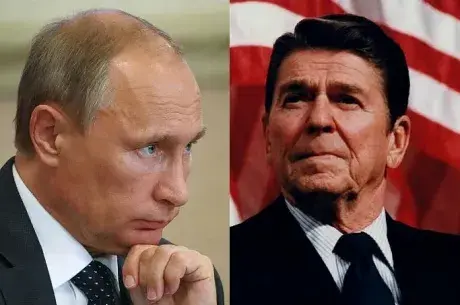Fateful Decisions Led to the War in Ukraine

The following Op-Ed was published in the print edition of the Providence Sunday Journal, April 24, 2022, p. A27.
~~~~~~~~~~

The war in Ukraine dominates our daily news. Russian President Vladimir Putin justifies the invasion with historical fictions and denies the atrocities being committed by his forces. The violence has wrecked Ukraine’s infrastructure, cost thousands of lives, and displaced millions of people. Watching the news feels like watching color footage from World War II.
In hindsight, this tragedy might have been avoided if we had listened to President Putin. He has long maintained that Ukraine is an illegitimate country, and he already had invaded and annexed Crimea. If the West had listened to him and responded more forcefully in recent years, this war might never have happened.
There was another president who was also central to this sad tale. The West did not listen to him either. If we had, he could have helped avoid this terrible war. That president was Ronald Reagan.
In the 1980s, governments and energy companies in Western Europe were building a natural gas pipeline from the Soviet Union to Europe, in a quest for cheap and abundant energy. President Reagan strongly opposed this: he believed Western countries should not provide an economic lifeline and abundant cash to the Soviet Union. His administration tried to prevent the pipeline by prohibiting the use of any U.S. products or technology in support of the project.
President Reagan’s approach failed. It would have been very effective in the 1950s or 1960s, when the U.S. supplied most of the world’s industrial goods and technology. By the 1980s, however, that was no longer true, and a U.S. export ban was not enough to stop the pipeline project. The Reagan administration took aggressive steps to sanction companies and countries involved in the pipeline project. But our European allies were not amused, and neither were the U.S. energy companies that stood to profit handsomely from the project.
The pipeline was completed, and since the 1980s natural gas has flowed copiously from what is now Russia to the economies of Europe. Plans to construct a new Russia-to-Europe natural gas pipeline in 2022 were scrapped because of the invasion of Ukraine, but it is a lesson learned far too late.
What if President Reagan had prevailed? A lot has happened in the last 40 years, and we cannot construct a parallel timeline with certainty. But in my view, Europe might not have become so dependent so quickly on Russian natural gas, making it easier today to wean Europe from Russian energy. Less clear, but certainly possible, is that U.S. influence and leadership in Europe might not have declined as precipitously between the 1980s and 2020s.
Perhaps — and this might be wishful thinking — Russia’s lack of funds from natural gas sales would have made it clearer to the West that post-Soviet Russia needed greater economic assistance, Marshall Plan-style, as it transitioned to a market economy. That, in turn, might have reduced the level of graft and oligarchy in Russia today.
Of course, none of this happened. Natural gas continued to flow from Russia to Europe. Russia was largely left to manage its own painful transition to a market economy. The result? Oligarchs, corruption, and European energy dependency on Russia.
It is tempting to close by saying “and the rest is history,” but that would be both trite and inaccurate. This is not about history; it’s about our present and immediate future. We are paying the price for fateful decisions made over four decades ago. The world should have listened better.
~~~~~~~~~~
Gregory Bowman serves as dean of Roger Williams University School of Law. He has spent his career practicing and writing about U.S. international trade law and sanctions.
To access the digital flipbook edition of the Providence Journal, use RWU Law library access or direct access.
